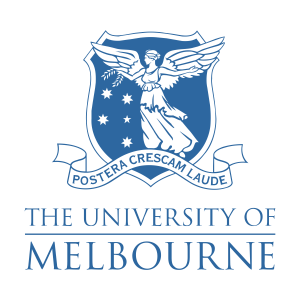
Posted: 11 August 2023
Event: 11-13 October 2023
Overview
This is a 3-day course run by the Health Economics Unit within the Centre for Health Policy at the University of Melbourne. It aims to familiarise participants with the fundamental theories as well as computer-based methods and techniques that are routinely used in economic evaluation with an emphasis on cost-effectiveness and cost-utility analyses. Economic evaluation has been widely used to assess new health care interventions and technologies and inform decisions about which interventions should be subsidized from available funds. In Australia, for a drug or a medical device to be listed on the PBS or MBS, economic evaluation is required to determine whether it represents value for money.
This computer-based course will cover the analytic steps in an economic evaluation, from methods for analysing cost and outcome data, developing decision analytic and Markov models, conducting sensitivity analyses and reporting and interpreting the results.
Who is this course designed for?
The course is designed for those who are or will be engaged in undertaking health economic evaluation, as well as those who need a more detailed understanding of the current analytic methods of health economic evaluation. These include researchers, clinicians, health care professionals, consultants and those assessing economic evaluations from public, commercial and academic organisations.
Pre-requisites
Participants should have a prior working knowledge of STATA software and an appreciation of the concepts of health economic evaluation. It is recommended that participants be familiar with common commands in STATA, introductory statistics and Microsoft Excel. The course will be computer-based, ‘hands-on’, and participants will be expected to bring a laptop computer (and mouse) with STATA and TreeAge Pro installed for use throughout the course. Licenses for STATA and TreeAge Pro will be supplied as part of the course materials. Exercises for cost and health outcomes analyses are moderately technical with the use of numerous STATA commands; therefore, participants are expected to review STATA commands and familiarize themselves with the exercises before the lectures. If you wish to discuss your suitability for this course, or make special arrangements to hire a laptop, please contact: health-economics@unimelb.edu.au
Course dates
- Fees: $2,200 (early bird), $2,640 (non-early bird, less than six weeks before the course)
- Location: In person
- Course Dates: 11-13th October 2023 (In person)
Course outline
The course will involve a series of modules that build on each other to provide an overview of all the steps required for health economic evaluation.
Day 1
Study Design Principles (morning)
- Overview of cost-effectiveness analysis?
- What health economic data need to be collected?
- Summary of key data sources including: clinical trials; linked administrative data; synthesis of the literature
Techniques for Analysing Costs (afternoon)
- Features of cost data
- Regression methods for analysing health care cost data
Day 2
Techniques for Analysing Outcomes (morning)
- Quantifying outcomes using life tables and an overview of survival analysis techniques including Kaplan Meier, as well as parametric survival functions
- Capturing and analysing preference based measures of quality of life
Introduction to decision models (afternoon)
- Building a decision tree
- Introduction to TreeAge including defining transitions and rewards in terms of costs and utilities
Day 3
Markov modelling and Applications
Conducting cost-effectiveness analysis including modelling Quality Adjusted Life Years (QALYs) and costs
- Capturing uncertainty and sensitivity analysis
- Presenting and interpreting results for decision makers
Each module will be re-enforced by exercises in Excel and the specialist modelling software TreeAge and we will demonstrate aspects of the course using the statistical software STATA.
Course leaders
A/ Prof. Kim Dalziel, Head of Health Economics Unit, Centre for Health Policy, University of Melbourne
Prof. Andrew Palmer, Head of Health Economics Research Unit, Menzies Research Institute, University of Tasmania
Dr. An Duy Tran (coordinator), Senior Research Fellow, Centre for Health Policy, University of Melbourne
For courses held in a classroom, lunch, morning tea and afternoon tea will be provided.
Extensive course notes will be distributed as well as a copy of the widely used Oxford University Press book Applied Methods of Cost-effectiveness Analysis in Healthcare.
Application procedure
Applications close the day before the course date.
For participants registering close to the course date, please be informed that we may not be able to cater to extra requests or specific dietary requirements. We are also unable to guarantee the availability of complete participant materials for the course (name tags, completion certificates). Where completion certificates are not available these will be mailed out to you after the course.



